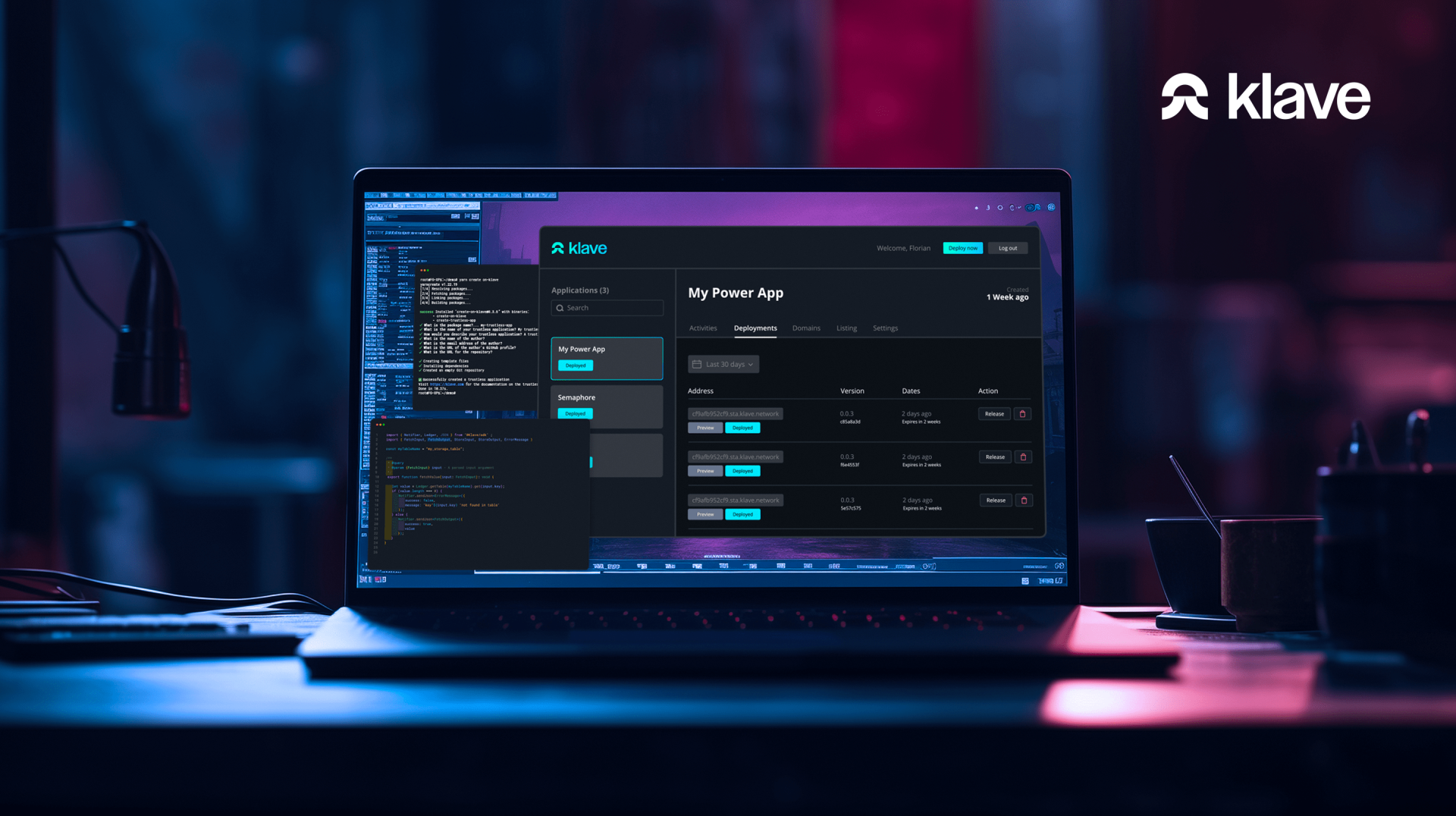Managed Kubernetes Service
Managed Kubernetes Service
Free yourself from the hassle of setting up and managing your Kubernetes clusters, and deploy your applications quickly with the benchmark container orchestration solution.
Why choose OVHcloud Managed Kubernetes Service?
Fully managed by OVHcloud
We manage the configuration, deployment and maintenance of all the components required for your Kubernetes clusters to work properly, on a sovereign cloud infrastructure. Focus on innovating and developing your digital products.
Scalability and resilience
Your infrastructure automatically adjusts depending on the load, so you consume only the resources you need, while the resilience of your applications is improved.
Interoperability
Get all the features of a certified Kubernetes. Our solution is certified by the Cloud Native Computing Foundation (CNCF) and ensures a high level of interoperability. Your infrastructure remains flexible and compatible with all of your existing tools and systems.
Ecosystem of services
Managed Kubernetes Service (MKS) natively integrates OVHcloud infrastructure services, such as CPU-centric instances for intensive computing, GPUs for artificial intelligence, storage classes, and Load Balancer. Create and deploy containerised and microservice-based applications more efficiently with our additional services: Managed Private Registry, Managed Databases, and Object Storage.
Key features
Automatic scaling of your clusters
With auto-scaling, your infrastructure adapts to the needs of your applications, whether upwards or downwards.
Integration with your access management tools
Control access to your MKS cluster resources by using OpenID Connect (OIDC) integration to manage access rights.
Simplified lifecycle management
Trigger Kubernetes updates in one click or via an API call, and define your cluster’s security policy to automatically apply new security patches.
SPECIFICATIONS
Technical specifications
Compatibility with Public Cloud instances
Balanced or optimised in terms of CPU, GPU, RAM, and storage
High performance storage
Block and Object Storage Classes
vRack private network integration
Interconnection with OVHcloud services
Integrated load balancing solution
With the Public Cloud Load Balancer
Auto-sizing
Auto-scaling up to 100 nodes per node pool
Integrated with your ecosystem of services
Logs management, managed databases, big data & AI
Deploy your Kubernetes clusters via Infrastructure as Code (IaC) with Terraform
Find out how to quickly and easily deploy our Managed Kubernetes Service with Terraform. This guide will show you how to deploy a secure Kubernetes cluster, configure a load balancer to ensure high availability, and set up persistent volumes for optimal data management.
YouTube conditions the playback of its videos on the deposit of tracers in order to offer you targeted advertising based on your browsing.
In order to watch the video, you need to accept the Sharing cookies on third-party platforms privacy category in our Privacy Center. You have the option of withdrawing your consent at any time.
For more information,visit the YouTube cookies policy and the OVHcloud cookies policy .
Managed Kubernetes Service solutions
Features
Auto-scaling node pools
Ensure your applications have the resources they need to run efficiently. With automatic cluster resizing, you can adapt the resources to your real needs. You only pay for the resources used by your services.
High-availability control plane
With the Standard solution, your control plane is replicated across several availability zones. If a zone becomes unavailable, your resources and control plane will remain protected.
New Kubernetes versions regularly available
In accordance with our Lifecycle Policy, we will make new versions available within 3 months of the Kubernetes project announcing the Stable version.
Advanced network management features
Choose the CNI that best fits your needs. With Cilium and eBPF, you get advanced traffic control, custom network policies, and increased observability.
Dedicated resources
With the Standard offer, you get to choose an etcd database on dedicated resources.
Worker nodes eligible for Savings Plans
Get low prices on your work nodes by signing up to Savings Plans. MKS nodes are considered standard Public Cloud instances, so you can use the resources of the same Savings Plan to create MKS instances and/or nodes.
Documentation

Explore the potential of the Public Cloud
Discover our comprehensive portfolio of Public Cloud solutions — Compute, Storage, Network, AI and much more — through an interactive and certification-focused learning experience.
You may also like
Why choose Managed Kubernetes Service?
Kubernetes explained
Kubernetes is the industry-leading container orchestrator and has been widely adopted. The open-source system enables the deployment, scaling and management of containerised applications in all types of organisations. With this service, developers can deploy their applications faster, without having to manage the underlying infrastructure.
Kubernetes simplifies container management by organising containers into logical groups. It ensures reliability and performance by supporting load balancing, configuration, storage management, and automatic disaster recovery. Designed to suit different environments (on-premises, public cloud or hybrid), Kubernetes offers high application portability.
Reversibility, hybrid cloud and multi-cloud
The CNCF conformance program ensures that your workloads are portable, even between different cloud providers. Kubernetes is the leading solution for multi-cloud (multiple providers or datacentres) and hybrid (a combination of cloud and local infrastructure) environments. The same configuration can be easily transferred from one environment to another.
Optimised management
We host and maintain all the essential components of Kubernetes, including the operating system and common technical elements of the compute nodes (such as the Docker runtime).
Your questions answered
Which resources are managed by OVHcloud?
In line with our responsibility matrix, OVHcloud will install and maintain the Kubernetes control plane (such as the API Server, storage, and controllers). However, although these components run on OVHcloud resources, the customer remains responsible for the security of their worker nodes, containers and pods, as well as for correctly sizing their infrastructure and backing up their data.
How do I subscribe to a Savings Plan for my Managed Kubernetes Service worker nodes?
Subscribe to a Savings Plan through your OVHcloud Control Panel. This subscription is not directly linked to node creation, and you can sign up or after they are created.
What is the difference between single-zone and multi-zone clusters for Managed Kubernetes Service?
In a Standard cluster, the components of the control plane are deployed with high availability in three separate zones in the region (multi-AZ), with automatic replication.
In a Free cluster, these components also have high availability, but within a single zone.
For node pools, you can specify the deployment zones, provided that they belong to the same region as the control plane.
How much does it cost to transfer data between my Kubernetes clusters, or externally?
To give you more control over your budget and avoid hidden costs, traffic between clusters, between clusters and OVHcloud services, and externally (internet) is completely free.
Are there any charges related to API calls?
No additional cost applies to API calls, whether they are internal to the Managed Kubernetes Service or addressed to the API Server.
What are the availability guarantees for the Managed Kubernetes Service control plane?
For the Free (free) version, the Service Level Agreement (SLA) guarantees 99.5% monthly availability. For the Standard version, an SLA of 99.99% will be offered after the beta phase.
What guarantees are offered for the resources used by the Managed Kubernetes Service (compute, storage, etc.)?
Managed Kubernetes Service works with OVHcloud cloud services such as instances, Block Storage and Load Balancer . You can view their Service Level Agreements (SLAs) on their respective pages.
What are the use cases for Kubernetes?
Kubernetes is a resource orchestrator. It distributes containers across the cluster’s available nodes, based on placement rules and your application’s structure.
2 For multi-AZ regions
3 The free service does not apply to the resources, instances, storage and network associated with it, which are the responsibility of the customer.





